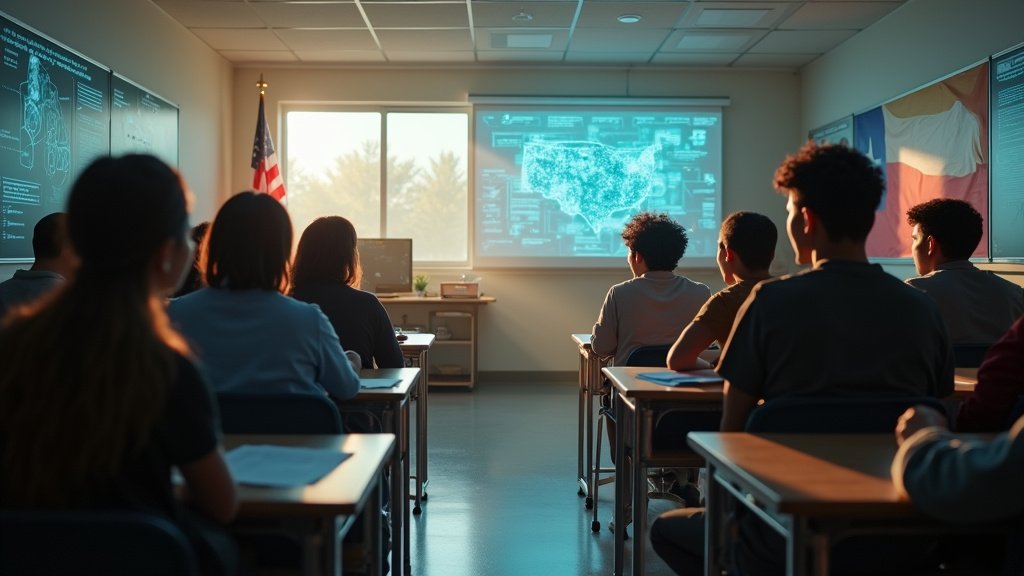The rapid integration of artificial intelligence (AI) into daily life has profoundly impacted the educational landscape, particularly concerning homework and academic assignments. What began as a novel tool for research and assistance has evolved into a complex debate, sparking widespread concern among educators, policymakers, and students alike. Editorial commentary and news analyses frequently depict this burgeoning issue, highlighting the dual nature of AI as both a potent learning aid and a significant threat to academic integrity.
The Ubiquitous Rise of AI in Student Assignments
Generative AI tools, such as ChatGPT, have become increasingly accessible, leading to a surge in their adoption by students for academic tasks. Studies indicate a significant percentage of students are now using AI in their studies, with some reports suggesting usage rates upwards of 80% in certain regions. This widespread use ranges from generating ideas and summarizing complex texts to drafting entire essays, fundamentally altering how students approach their coursework. The ease with which these tools can produce content has made them a common, though often controversial, fixture in academic life.
A Double-Edged Sword: Learning Aid or Shortcut to Cheating?
The discourse surrounding AI in education is sharply divided. On one hand, AI offers unprecedented opportunities for personalized learning, providing instant explanations, aiding in research, and assisting students who may lack access to traditional support systems. It can streamline time-consuming tasks, potentially freeing up educators to focus on more nuanced pedagogical activities. However, this accessibility also fuels concerns about academic dishonesty. Universities are reporting significant increases in academic integrity violations, with AI-generated content often cited as a primary factor. The fear is that AI bypasses genuine learning, allowing students to submit work they do not fully understand, thereby undermining the educational process.
Ethical Quandaries and the Erosion of Critical Skills
The ethical implications of AI in homework are vast and complex. The primary concern revolves around plagiarism and misrepresentation, as students may pass off AI-generated text as their own work. Beyond direct cheating, there is a growing worry that an over-reliance on AI could stunt the development of essential skills, particularly critical thinking, problem-solving, and independent writing. Research suggests that while AI can enhance productivity, it may also diminish motivation and even affect cognitive processes if not used thoughtfully. This dilemma forces a re-evaluation of what constitutes original work and the true purpose of academic assignments, which are designed not just for output, but for learning and skill development.
Texas Education Navigates the AI Frontier
In Texas, the integration of AI into education presents a dynamic and evolving picture. While the Texas Education Agency (TEA) has not yet issued comprehensive statewide guidance for K-12 schools, many districts are beginning to experiment with AI tools and develop their own approaches. This hands-off approach, while allowing for local innovation, also creates disparities, with some schools having more access to AI guidance than others, particularly in higher-poverty areas. Nevertheless, Texas is making strides in AI regulation, with initiatives like Governor Greg Abbott’s signing of House Bill 2060, which established an AI advisory council. Innovative educational models, such as the Alpha School in Plano, which utilizes AI for core academic instruction, are gaining attention from state and national education leaders. Texas Education Agency Commissioner Mike Morath has indicated that concepts from such forward-thinking programs may soon be implemented in public schools, signaling a proactive, albeit cautious, embrace of AI in the state’s educational future.
Editorial Perspectives and the Visual Commentary
Editorial cartoons and opinion pieces have become crucial mediums for capturing the public’s evolving perception of AI in education. These visual and written commentaries often encapsulate the prevailing anxieties and optimistic forecasts surrounding AI’s role in homework. Cartoons frequently depict AI as a helpful, albeit sometimes mischievous, assistant, while news editorials grapple with the policy implications, ethical considerations, and the urgent need for adaptation. Such editorial content serves as a vital barometer for the ongoing public conversation, illustrating the intricate balance schools must strike between harnessing technological advancements and preserving educational integrity. The news surrounding AI’s impact in educational settings underscores the urgency of these discussions.
Charting a Course for the Future
As AI continues to advance, educational institutions worldwide are challenged to adapt. The path forward requires a nuanced approach that moves beyond outright bans towards developing robust policies, fostering AI literacy, and encouraging ethical use. This involves clearly defining acceptable AI applications, promoting transparency in its use, and recalibrating assessment methods to evaluate genuine student learning. Ultimately, the goal is to leverage AI as a tool to enhance, rather than compromise, the fundamental objectives of education, ensuring that students are equipped with the skills and critical thinking necessary to thrive in an increasingly AI-driven world.






